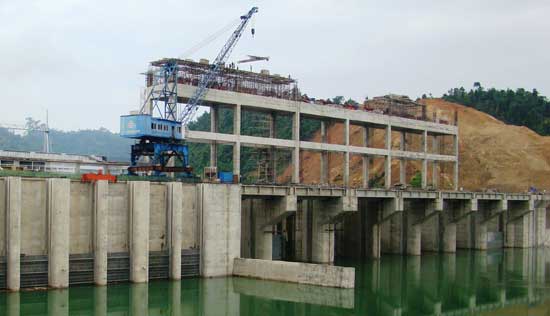A representative from PanNature suggested clearly defining the non-profit status of science and technology organizations to facilitate research, technology transfer, and application. This clarity would also enhance international collaboration and attract funding.

Call for rethink on hydro-power plants
Four non-government organisations (NGOs) have called on the National Assembly for tighter controls on hydro-power plants to prevent loss of lives and widespread damage during storms.
The recommendation was made by the Viet Nam River Network (VRN), People and Nature Reconciliation (PanNature), Centre for Sustainable Development of Water Resources and Adaptation to Climate Change (CEWAREC), and the Centre for Promotion of Integrated Water Resources Management (CIWAREM).
The NGO leaders said that the operation of existing power plants had created severe impacts on residents lives, property – and the environment.
 Photo: PanNature.
Photo: PanNature.
“We understand the contribution these plants make to the economic development of the nation, but we call for reconsideration on planning future ones and their impacts on rivers and environment in general,” said Lam Thi Thu Suu, VRN’s chief coordinator.
“We also call for more responsible management by Government on sharing water resources and water discharges during the flood season.
“For years, locals in Central region have experienced so much loss, including loss of lives, properties, livelihood and culture,” she said.
In early November, the unannounced discharge of a huge volume of water from Huong Dien and Binh Dien power plants in Thua Thien Hue Province killed three people on their way to school and on work.
Later, continuous water discharges of water from power reservoirs added to the floods caused by heavy rains in Central provinces from Thua Thien Hue to Khanh Hoa. The size of the floods was described as historic. They claimed 43 lives, destroyed concrete bridges and roads, and wiped out thousands of hectares of crops.
The record floods created an emergency situation for thousands of people in the southern Central region and Central Highlands.
At a NA session last week, Prime Minister Nguyen Tan Dung admitted that the management of power plants had been loosely handled and pledged that the National Assembly would tighten up the situation.
The four local NGOs also recommended forcing power plant developers, managers and central and local governments to comply with strict regulations.
They asked for a detailed assessment on the losses caused by power plants so that those affected could be properly compensated and enabled to get on with their lives.
The NGOs recommendation called for environmental-impact assessments for power projects to be carefully implemented by the scientific community before any new work was done.



